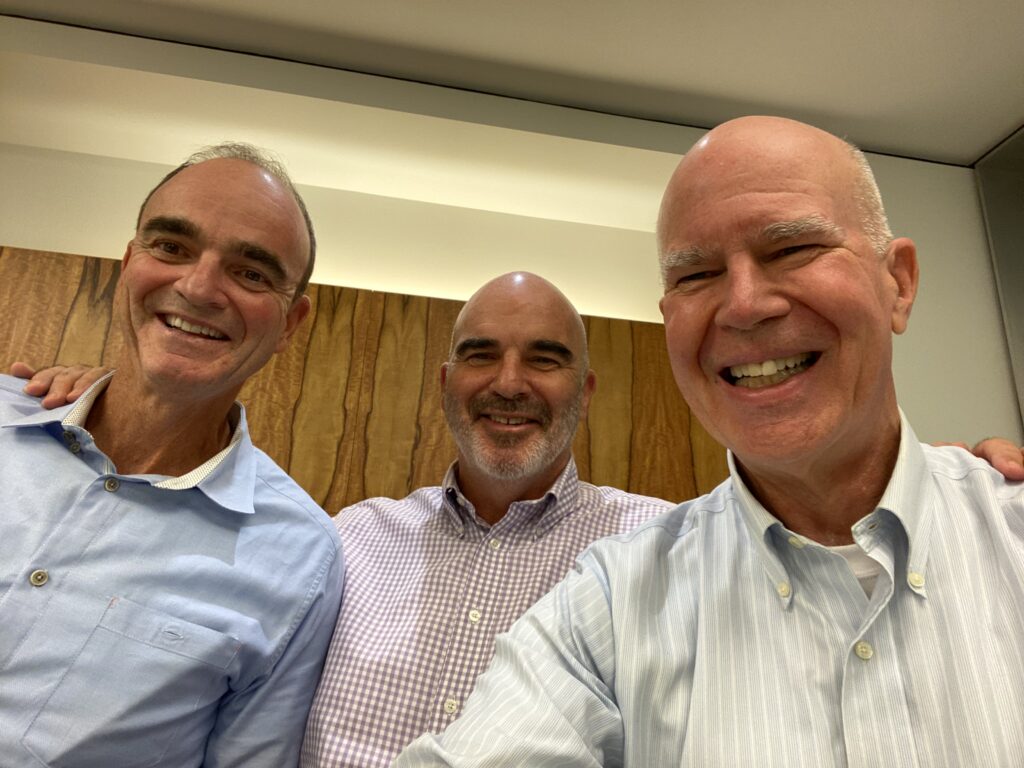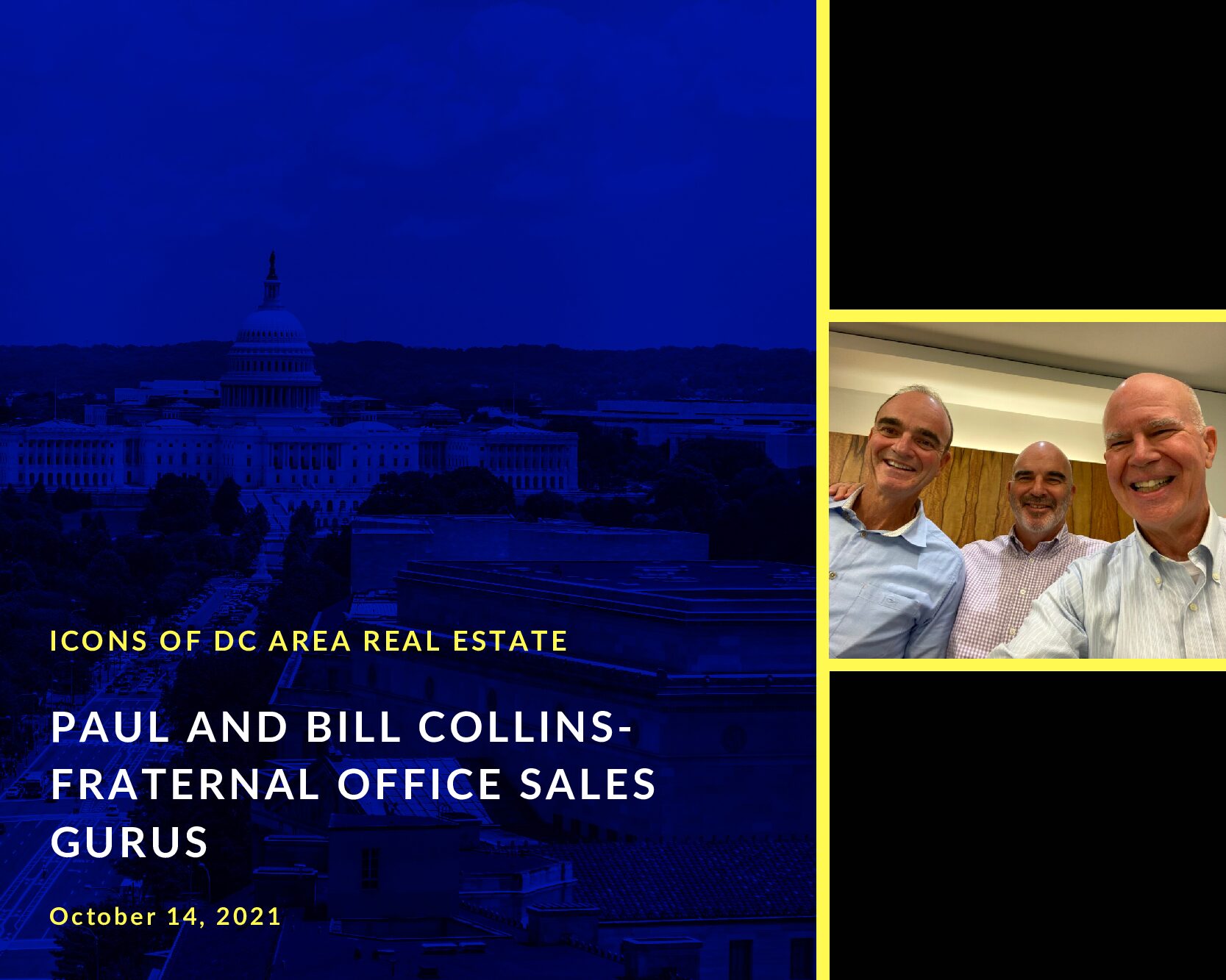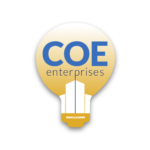

Bios
Paul Collins
Paul J. Collins is one of the top Investment Sales brokers in the Southeast region of the United States, with more than 30 years of commercial real estate experience focused primarily on institutional sales, joint ventures and financings. As Executive Vice Chairman in Cushman & Wakefield’s Washington, DC office, he works actively with institutional owners in the consultation and disposition of their real estate assets. During the past ten years, Paul has successfully completed more than $30 billion in investment property sales. He currently serves on the Cushman & Wakefield Global Advisory Board.
Bill Collins
William M. Collins has more than 30 years of commercial real estate experience focused primarily in the sale of commercial real estate office buildings and land in the Washington metropolitan area.
Bill works actively with institutional owners in the consultation and disposition of their real estate assets. During the past ten years, he has successfully completed more than $30 billion in investment property sales
Show Notes
- Unique Sales proposition- Bill Collins– Honest Advisors to Clients and our prospective buyers. The Truth will Set you Free! (5:45)
- Paul Collins– Be happy for client’s success (6:45)
- Relationship as Brothers- Trust, Split everything down the middle. Paul cites one extra portion of food he never got in the family. Implicit trust. (8:00)
Origins & Education
- Bill Collins Origins- Large family with 5 siblings in Bethesda, MD. Born in Hagerstown, MD. Dad was in car lending business (10:30)
- Dad did repossessions of cars, being a lender on cars (11:15)
- Dad was also in real estate investing around the area in small deals (13:00)
- Paul Collins–
- Remembered his Dad started a restaurant with a defaulting partner near RFK Stadium (14:45)
- Miller & Smith relationship (16:15)
- Dad’s lessons- Follow your own path (17:15)
- Construction business opportunity (18:15)
- Focused on being devoted to your friends (19:20)
- Protective of his relationships (19:30)
- Mom pushed them into sports to keep them focused on athletics (20:00)
- Grew up in Catholic church community, but attended public school (20:40)
- Dad went to Gonzaga and Uncle went to St. John’s (21:50)
- Guys went to Churchill H.S. (22:10)
- Both guys attended University of Maryland (23:00)
- Bill Collins had a mentor/coach in 5th grade- Bill Hart, an IBM salesman and youth coach (23:30)
- His mentor left IBM and worked for a Saudi company and hired him to go to Saudi Arabia (24:30)
- Went there right out of University of Maryland (21 yrs. old) (25:45)
- Heard “prayer call” the first night in Saudi Arabia–a shocking experience (26:50)
- Family was a major business player- largest food importer in Saudi Arabia (28:00)
- Six years with company and traveled back and forth from NY to Saudi Arabia (29:30)
- Chevy Blazer trip story with a Lebanese business partner across the country (30:00)
- Paul Collins was told when you can find a school with a bigger library that the University of Maryland, you can go there…get a job or go to the University of Maryland (32:15)
- Great basketball teams then (33:00)
- Fun stories in college
- Knox Boxes– poor housing conditions then (33:45)
Career Trajectory
- Bill Collins got married in 1983 after being in Houston and came back to DC (35:30)
- Intrigued by development activities was catching up with guys at Barnes Morris & Pardoe (36:30)
- Classified ads- Cassidy, Jaeger & Pinkard– Met with Bob Pinkard and asked about his interest (37:50)
- Bill Hart (his mentor) was connected to Pat Cassidy (38:45)
- Started working on land assemblages for Hines (Bill Alsup) and Carr Companies (39:20)
- Downtown land assemblies and then went out to Loudoun County with large commercial land assemblies (40:10)
- Duke Zieberts Restaurant– Deal making (42:10)
- 1990s- Made $0 in 1991 (42:40)
- Knew RE from the ground up- solving problems for owners (44:15)
- Met Sue Carras at Sonnenblick-Goldman through the Pedas brothers on their Pennsylvania Ave. site (44:55)
- Bob Pinkard and Bill went to NY with Sue Carras and formed JV with Sonnenblick-Goldman (46:00)
- George Carras was at JMB Realty initially and then Walton Street Partners and subsequently Blackstone (47:15)
- Sam Zell’s first deal in DC- 1111 19th St. deal (47:30)
- Sybil Ellis was an Equity Office leader (47:50)
- John Mangan (48:45)
- Paul Collins started in Tysons Corner office of Cassidy Pinkard after being with Spaulding and Slye and was a partner of Andy Eschelman, who was there in 1989 and then 1990 came and Andy left and Paul was “abandoned” (49:20)
- Began calling on foreclosed properties in 1991 and hit the jackpot with opportunities (51:00)
- Developed a relationship with Chase Manhattan Bank- first meeting with a guy who was brand new and had a tremendous opportunity (52:50)
- Right place, right time (53:45)
- Closed Tysons office (54:45)
- In 1993 they came together with Sue Carras (55:40)
- Hired Brian Berry as an analyst (56:00)
- Hired Drew Flood then (56:20)
- Great hires on team- very successful in hiring (57:00)
- Bill Collins
- Hit em high (seniors), Hit em low (juniors) and hit em in between (57:50)
- Knew most hires wouldn’t become brokers and would leave them and have a “double MBA” (58:15)
- End up at JBG, FCP, or Meridian (58:45)
- Large group to mentor and teach (59:00)
- Interaction between a large team was powerful (59:15)
- Being around smart, young people is the lifeblood of the business (59:50)
- Sue Carras retired and then “came back” but not with them (she went on to HFF at the time) (1:00:30)
- Discusses the mergers with Colliers first and then Turley Martin (1:02:00)
- Mergers occurred for national tenant representation (1:02:50)
- Concerns about service sharing took them away from Colliers and toward Turley (1:04:00)
- John Fleury helped build Cassidy Turley (1:05:20)
- How to compete? Spoke to Brett White who was approached by TPG and Ontario Teachers to pursue brokerage and became DTZ (1:06:00)
- Spent $1M to a marketing company to choose Cassidy Turley name (1:09:00)
Relationships & Competition
- Beacon Capital– Focused group which had evolved after the predecessor company merged with Equity Office (1:10:30)
- First deal stemmed from a tour in the East End (1:11:45)
- Asked “What do we need to do to make deals?”
- Trust factor is so high as most deals were done without anything in writing (1:12:30)
- Tell people the truth on competitive situations (1:14:40)
- No one minds losing if they got a fair shot at deals (1:15:00)
- Drive the best price by competing it (1:15:40)
- Competition
- Institutions see business as a commodity business (1:17:30)
- Convince people that their business is not a commodity offering (1:18:00)
- The amount of research and time invested in making their point (1:18:30)
- The bar keeps rising regarding information to provide to investors (1:20:00)
- Everybody has the basics- What else about the property is unique? (1:20:30)
- What’s the potential for a higher price and what influences are there? (1:21:00)
- Up front and after a deal is under contract a thorough analysis (1:21:30)
- Educate that brokerage is not a commodity product (1:23:10)
- Why not take a listing?
- Client is told up front that it was a difficult challenge (1:23:50)
- Will decline business if no future business is perceived (1:24:30)
- Tying a listing on a sale to the financing services (1:26:30)
- Phil Mudd joined (1:27:45)
Advice, Strategies & Trends
- Agnostic to whether the client wanted to sell or refinance a property (1:29:00)
- Give great advice offering options to clients and incentives are aligned on the entire team (1:29:50)
- Different perspectives needed to be successful in selling properties (1:31:00)
- Camaraderie among team critical (1:32:20)
- Help people who leave to find their next opportunity (1:34:15)
- Interview- 90% of peer group will not be here four years from now (1:34:50)
- Help find next job (1:35:10)
- Brian Berry said that he needed to leave and be on the principal side of the business (1:35:40)
- Changes in brokerage
- Technology is the biggest change (1:36:40)
- Office has the longest way to go as far as asset types (1:37:00)
- Employees can be 100% effective at home (1:37;50)
- Young people miss the opportunities to learn by not being in the office (1:38:15)
- All of their team is coming into the office (1:38:50)
- Building more buildings to offer the right amenities (1:40:00)
- Offer hotel like amenities (1:40:50)
- Business will change soon- a reset is coming (1:41:15)
- Believes the market is in denial about the market (1:42:00)
- Federal spending might have some impact on Washington market (1:43:40)
- Market will evolve (1:45:00)
- Tenants need to “look forward” to going to the office (1:46:00)
- Generational changes affect office usage (1:47:20)
- Short term leasing challenges- turnover costs now limited (1:48:45)
- Underwriting will change- 85% may be “full occupancy” going forward (1:51:00)
- Office building may become like a hotel (1:52:20)
- What makes a great real estate broker? Defend what your client needs and be creative about how deals can be made. Be a long term thinker. (1:54:00)
- When you know you will get the business and earned the right to ask for and win the business (1:55:50)
- Sometimes you know you won’t win a listing, but you rehearse to win the next deal (1:56:50)
- Paul talks about his sales training for dictation equipment to apply to human nature (1:57:50)
Wins, Surprises, and Personal Advice
- Win- Sale of Exxon Campus in Northern Virginia (1:59:40)
- A woman on their team was “all in” on the opportunity (2:02:00)
- Short listed to three groups (2:03:00)
- Didn’t tell them that their ideas were “bad ideas” and tried to work with them (2:03:45)
- Never know who decision maker is in the room (2:04:15)
- The only way to make the deal is a ground lease (2:05:35)
- Milt Peterson was on the decision making team for Inova Hospital (2:06:00)
- Exxon couldn’t sell until moved out (2:07:50)
- Inova couldn’t proceed without site control which required a ground lease (2:08:40)
- Marriott Sale they did not win (2:10:00)
- Getting reps for young people
- Surprise- Douglas Jemal in the 1990s (2:11:40)
- Sat with Doug and figured out what to sell (2:12:00)
- Put deal together and found out that Doug had other deals teed up to buy (2:13:00)
- Due diligence was difficult
- Douglas is a visionary (2:14:00)
- Life priorities
- Family- 16 nieces and nephews are very close (2:16:00)
- Charities- Bill and his wife, Robin, look at many things- Partners in Progress (2:17:30)
- Inner cities children’s programs
- Paul’s wife started “Many Hands” that invests in various charities including “A Wider Circle” (2:19:00)
- Tells young people to get involved in every cause (2:21:40)
- Advice to 25 yr. old self- Paul says take advantage of “paradigm shifts” in technology and life sciences (2:22:15)
- Very few people act on great ideas (2:24:50)
- Tremendous value in progress to adapt to change and the climate (2:25:20)
- Bill says to learn how to “deal with failure” (2:26:30)
- Risk/reward is not really an issue for young people on business activities (2:26:50)
- Find something that you love and you won’t work a day in your life (2:27:40)
- Look at incremental success (2:28:00)
- Billboard question: “Get your butt back in the office!” (2:29:00)
- Paul: “Stay alive until 2025”
- Bill: “Why not?” (2:30:00)
- Blessed tremendously-great mentors and partners (2:31:40)
Postscript
- Colin Madden enjoyed the conversation (2:34:00)
- Response to be a long term thinker (2:35:15)
- Earned the right to do something
- Tendency to be presumptuous as a young person
- Let things play out and they often work out
- Colin recognized that learning is more important now than when he was out of college
- Getting reps in- learning experience
- Expand the circle of competence through reps
- Citation of the Exxon sale to Inova and how certain people in the room during a pitch
- Loved Paul’s reference to “paradigm shifts” in real estate now
- Listen to what users and customers are doing relating to properties
- Use first principles in why use space- Why go to the office? Why go to a shopping center?
- Can do your job at home, but the chemistry of being the office is critical
Opportunity for Young CRE Professionals
- Iconic Journey in CRE- please email me at john@coeenterprises.com

